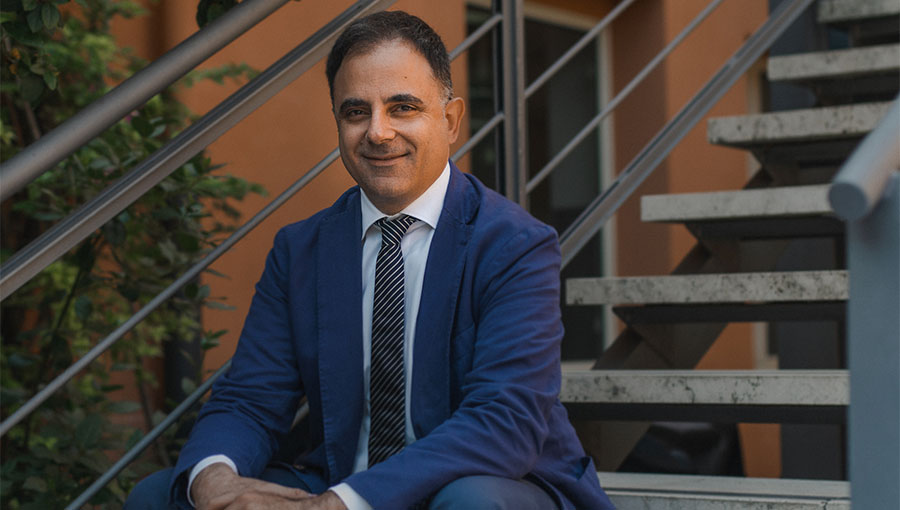Professor Fabrizio Conti Presents Paper at the "From Logos to Person" Conference
Professor Fabrizio Conti presented a paper at the 5th Interdisciplinary Conference “From Logos to Person” held at the Polis Institute of Languages and Humanities in Jerusalem, Israel, on October 7, 2021. The conference was organized by Johns Hopkins University, the University of Notre Dame, and the University of Hamburg.

Fabrizio Conti
Professor Conti’s paper, called “The Preached Word and the Pagans: Maximus of Turin and the Shaping of Christian Identity in Late Antiquity (4th-5th Centuries CE),” discussed the sermons that Maximus, the first bishop of Turin composed following the publication of Edict of Thessalonica by Roman Emperor Theodosius (380), which officially made Christianity the state religion. It is through Maximus’ preached word that one can reconstruct the themes, methods, and strategies used by the bishop of a Christian Church on the rise to shape a specific Christian identity in relation and in opposition to other Roman cultural and religious identities that were being placed under the category of “paganism.” All that, in turn, helped to provide the later Roman empire with a new semblance: one that would contribute to define many of its subsequent, late-antique and early-medieval transformations.
The conference gathered scholars from the fields of philosophy, linguistics, philology, literature, anthropology, and theology to examine the notions of ‘logos and person’ and their rich interactions throughout history. Whether language is perceived as an instrument of communication or as a human activity devoid of real meaning, the acquisition and ongoing use of speech shapes our identity and our attitude towards individuals and communities, expressing key attitudes such as self-acceptance and openness to others, tolerance and intolerance, belief and skepticism. Language is central to shaping man’s position in the world and in society.
Fabrizio Conti received a dual Ph.D. in History and Medieval Studies from the Central European University, Budapest, Hungary (2011). He has an undergraduate degree in History from the Sapienza University of Rome, and has earned certificates from the Pontifical Institute for Christian Archaeology in Rome and the School of the Vatican Secret Archive. Prof. Conti is currently co-editing the volume ‘There is No One Who Does Not Fear to Be Spellbound’: Magic in the Roman World (8th c. BCE – 5 th c. CE), and he has published the edited volume Civilizations of the Supernatural: Ritual, Witchcraft, and Religious Experience in Late Antique, Medieval, and Renaissance Traditions (Trivent, 2020), as well as the monograph Witchcraft, Superstition, and Observant Franciscan Preachers: Pastoral Approach and Intellectual Debate in Renaissance Milan (Brepols, 2015).
In Spring 2022 Professor Conti will teach Late Antiquity: Magic, Ritual and Witchcraft, The Birth of Medieval Europe: from Constantine to the First Crusade, The Italian Renaissance, and Mystics, Saints, and Sinners: Studies in Medieval Catholic Culture.





